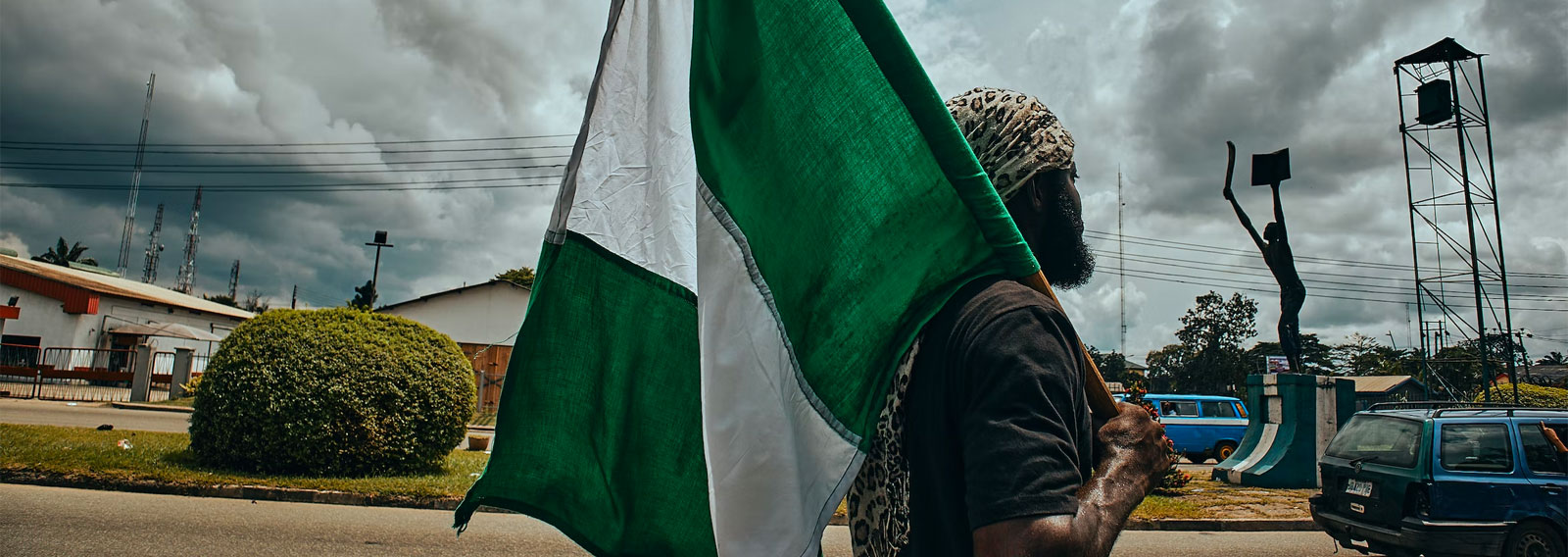Christians and non-Muslims in Nigeria could soon be living under the iron fist of Islamic law after a State Court in Kano broke with Nigeria’s constitution.
Judges upheld a death sentence handed down by a Shari’a Court to Yahaya Aminu Sharif, a 22-year-old singer, accused of blaspheming Islam on WhatsApp in August 2020.
In spite of Sharif having already served two years in prison, the judges, ‘ruled that Islamic religious law does not violate the constitution, dismissing a test-case challenge from the singer,’ explained Reuters.
International Christian Concern said the ‘decision blurred the line between what can be tried in sharia courts.’
ICC added that ‘the three-judge panel’ effectively ruled that Islamic law has jurisdiction over Christians and non-Muslims, potentially making Islamic law judge, jury, and executioner.
Although due process and religious freedom are planted firmly in Nigeria’s constitution, some regions in the country’s north implement Shari’a.
Kano is one of 9 states in the north that are increasingly placing Islamic religious law above the secular country’s rule of law. 3 other northern Nigerian states allow citizens a choice between a civic or religious court.
While there are constitutional allowances for Shari’a Courts, these permissions restrain Sharia law to adjudicating personal matters, such as marriage and divorce.
The problem is, said the ICC, “Shari’a courts, to the contrary, [are] enforcing strict adherence to Islam and severely punishing perceived insults to Islam.”
This assertion is backed by the long campaign from Shari’a advocates to turn the country’s judicial system over to Islamic law.
Video from 2021 shows lawmakers passing an ‘Enlargement of Jurisdiction’ bill for Shari’a Courts, without debate.
Hence concerns about the precedent set by judges in their pro-Shari’a ruling against Yahaya Aminu Sharif.
Any overreach into criminal law – via predominately Sunni, Maliki: Hudud, Qisas and Diyyah – and Islamic religious law violates Nigeria’s charter of Fundamental Rights, as spelled out in Chapter 4 of the country’s constitution.
These rights are constitutional provisions for freedom of religion, expression, thought, conscience, movement, and peaceful assembly.
Additionally, the criminal sentencing of any Nigerian under any law outside Nigerian law is an apparent contradiction of Article 36 subsection 12:
“Subject as otherwise provided by this Constitution, a person shall not be convicted of a criminal offence unless that offence is defined and the penalty, therefore, is prescribed in a written law, and in this subsection, a written law refers to an Act of the National Assembly or a Law of a State, any subsidiary legislation or instrument under the provisions of a law.”
This weakening of Nigeria’s civil liberties is almost a year after Joe Biden’s Secretary of State, Antony Blinken overturned a Trump administration move listing Nigeria on the U.S State Department’s Country of Particular Concern (IPC).
Reuters recalled Blinken removing Nigeria from the list before a visit to the country in late 2021, as part of the U.S Secretary of State’s tour of Africa.
In protest, the U.S. Commission on International Religious Freedom slammed the Biden administration for dismissing religious freedom violations in the country, saying it was ‘especially displeased with the removal of Nigeria from its CPC designation, where it was rightfully placed [in 2020].’
Addressing the Kano ruling, ICC’s Director of Advocacy, Matias Perttula stated:
“The court’s decision is a strike against religious freedom in Nigeria and officially sets the legal structure for the continued persecution of Nigeria’s Christians. This decision was clearly a step back for all human rights, religious freedom, and freedom as whole for Nigeria.”
News of the ruling in Nigeria also coincides with the Islamic terrorist stabbing of Islamic dissident, Salman Rushdie.
The 75-year-old, author of The Satanic Versus, was allegedly stabbed in the neck and abdomen by Hadi Matar while giving a speech in New York for insulting Islam.






















